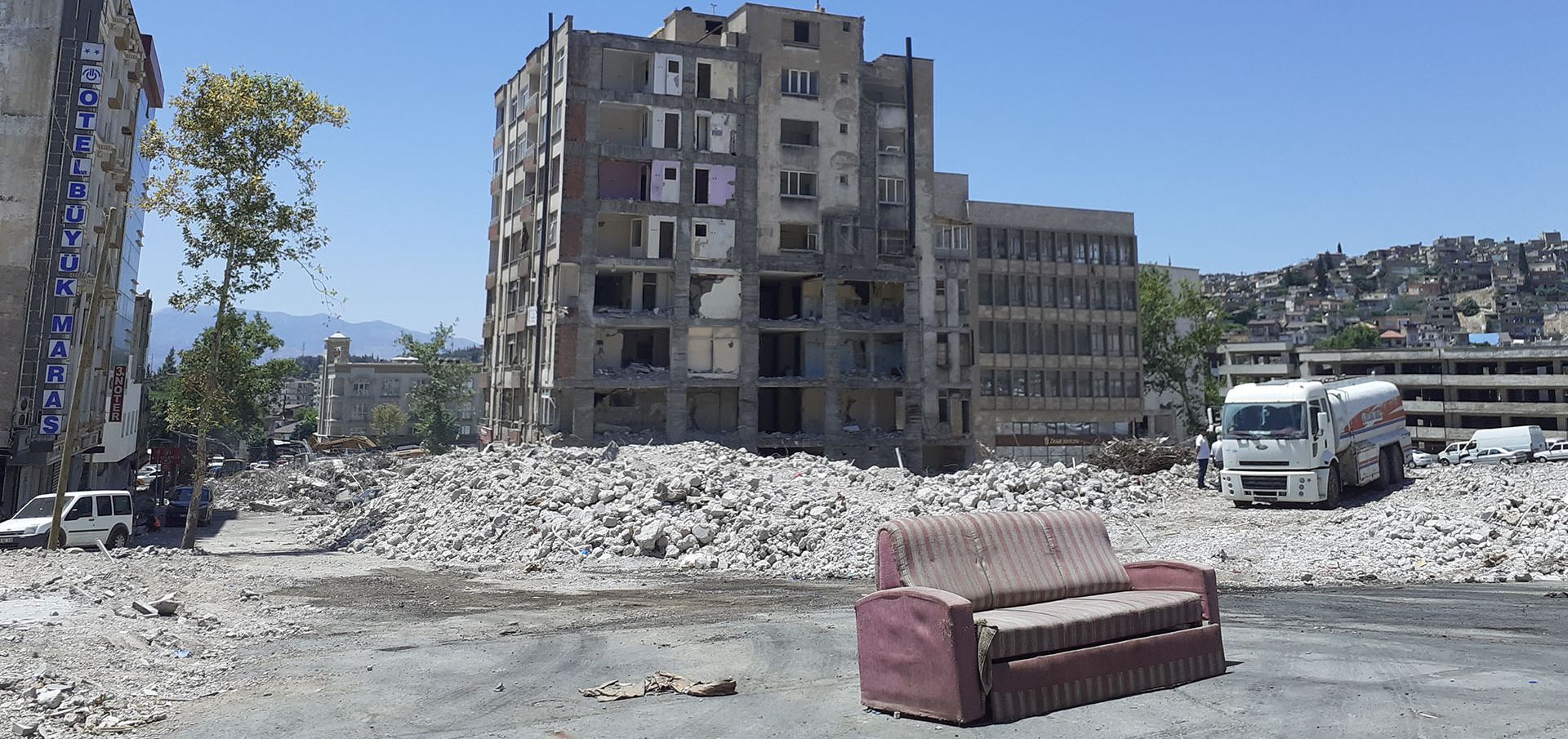There is still dire need in the earthquake regions – also because Ankara and Damascus are instrumentalising aid
On the night of 6 February 2023, an "earthquake of the century" struck the border region in Syria and Turkey. According to official figures, 130,000 people died under the rubble, although unofficial estimates put the figure much higher. Thousands are still missing today, while millions of people became homeless overnight, losing everything. More than 3 million are still living in container and tent camps.
Willingness to donate and help was enormous at the time – medico's emergency aid also experienced an outpouring of solidarity. This enabled us to provide rapid support to our long-standing partner organisations in northern Syria and south-east Turkey. One year later, we are funding projects that provide long-term support for the victims. This is desperately needed, as aid was also used for political purposes in the entire earthquake region and did not arrive everywhere for a long time.
The failure on the part of the Turkish civil defence system was blatant – in many places, help did not arrive, or it arrived too late. Rescue operations to uncover and save buried victims often failed to materialise. Instead, civil society initiatives were criminalised and relief supplies were confiscated. The involvement of the Turkish state in the machinations of a corrupt construction economy, lack of preventive measures, aid scandals in government-affiliated aid organisations and ignored warnings – all of this cries out for an independent investigation, but there is none. Presidential and parliamentary elections were held in the midst of the earthquake relief programme, which the autocrat Erdogan won despite the state's failures.
In Syria, the earthquake destroyed thousands of homes, claiming at least 8,000 lives and impacting up to 8 million people. People there have been living in a state of permanent humanitarian crisis for years – the earthquake is a new low point in the Syrian disaster. Due to the Turkish border blockade and the instrumentalisation of aid by the dictator Assad, it took days for international aid supplies to reach the largely destroyed north-west, in Idlib and Afrin. To date, no aid at all has arrived in the Kurdish north-east. Millions of internally displaced people live in the north of Syria, the entire territory of which has been ravaged by war, and where the population was already dependent on humanitarian aid before the earthquake. To this day, their supply of needs remains extremely precarious, while UN programmes are being successively cancelled despite mounting needs. Assad was able to use the international aid to present himself as a saviour of those in need. Meanwhile, the war continues: the Syrian regime is bombing Idlib, Islamist rebels are murdering people in Afrin, while Turkish missiles are targeting civilian infrastructure in Rojava, making aid and survival in the camps extremely tenuous.
Alleviating hardship, opening up prospects
How medico partner organisations provide aid on the ground
Cooperatives
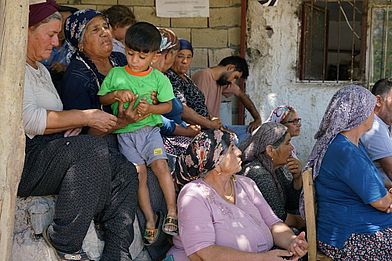
South-east Turkey. In the Malatya region, state aid is particularly important in the largely destroyed Kurdish-Alevi mountain villages. medico is supporting the community reconstruction of houses and helping people be able to stay: agricultural co-operatives are being established with the help of medico so that the people who live there do not have to move away and can continue to make a living in their villages.
Emergency aid and psychosocial support
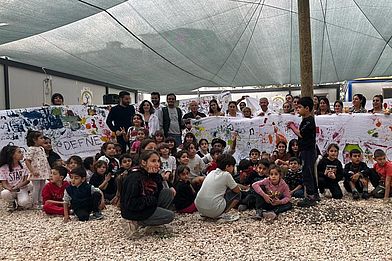
North-west Syria. In the regions around Idlib and Afrin, all access for international aid to the areas controlled by Islamist rebel groups was initially blocked in the aftermath of the earthquake. One year later, just like before the earthquake, there are still shortages of everything. Millions of internally displaced people in the region need to be provided for. medico's partners, including the Women's Centre in Idlib, are organising emergency shelters and the distribution of goods essential for survival for families along with psychosocial support for the traumatised individuals.
Health, water, prevention
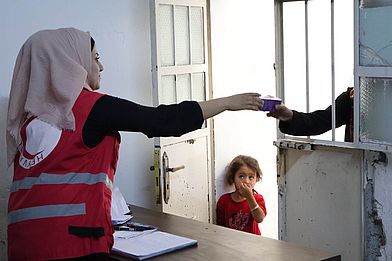
North-east Syria. In Rojava, the long-standing medico partner organisation "Kurdish Red Crescent" continues to provide emergency aid with its own funds and is caring for tens of thousands of families who have become homeless. Many of them are living in tent camps in the Shebha region, where hundreds of thousands of refugees from Afrin have been living in extremely difficult conditions for years. Thanks to medico donations, the emergency aid workers have also been able to tackle long-term measures. A clinic providing basic medical care has been rebuilt in the Kurdish district of Sheikh Maqsud in Aleppo. Solar-powered water wells are shoring up the water supply for the people in the camp in Shehba. Emergency teams are also being trained in disaster prevention, while search and rescue training is being organised.
Mobile clinics
South-east Turkey. The earthquake hit the elderly and sick in rural areas particularly hard, leaving them isolated. The health workers' union, the traditionally oppositional medical association and the pharmacists' association are therefore operating mobile clinics with the support of medico. These enable doctors and nurses to reach remote areas in the provinces of Hatay, Kahramanmaraş and Adıyaman. And they offer health services to the scattered tent and container camps. The health workers are part of the "Emergency Aid and Solidarity Network", which was founded immediately following the earthquake in Diyarbakır. The aim is to improve disaster protection, coordinate aid measures more closely and work in the earthquake region over the long term.
Psychosocial work in emergency shelters
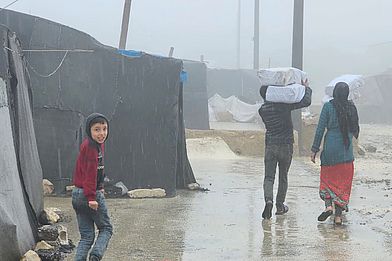
South-east Turkey. Living conditions for survivors in the containerised settlements and tent cities are poor. The water supply is often inadequate and there are too few sanitary facilities, while demolition work has released asbestos. People are left alone to cope with everything they have experienced, with women reporting an increasing number of assaults. This is where the women's organisation ROSA comes in. In Adıyaman and Diyarbakır, they offer psychosocial counselling for women with the support of medico. The programme also provides legal support and social activities.

